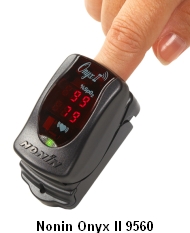|
Consumer meets medical in ESC teardown
9/5/2011 |
|
|
Rick Merritt
SAN JOSE, Calif. - Engineers will get a glimpse into the future of personal health care devices at DesignMed 2011 where experts will tear down a Nonin Onyx II 9560 fingertip pulse oximeter, a system that helped pioneer the emerging field. The teardown is one of a handful of sessions at the ESC Boston event exploring the horizon in personalized medicine.
"Nonin saw a need for something small and simple taking medical devices from tabletop systems to handheld units nurses can carry around with them," said Bill Betten, the former vice president of engineering at Nonin Medical who will be in the audience for the teardown.
The Onyx system is a regulated device geared for use in hospitals, but helped forge the way for consumer medical devices that face less stringent regulations.
"In the not-too-distant future we'll see a lot of neat technologies like headsets that measure body parameters, body-worn sensors, chest straps and a lot of things that creep up to the edge of the professional medical world," said Betten, now a senior advisor for the medical group at UBM TechInsights, part of UBM LLCs, the publisher of EE Times.
The sophisticated displays, processors and user interface software of the fast-moving consumer sector are invading the medical electronics field that has been focused on trailing edge components and long design and approval cycles, Betten said. That's creating "a fundamental clash of cultures," he said.
"It's all evolving so rapidly it's hard to keep track of it," he said. On the other hand, the low power and miniature packaging technology of medical implants is likely to flow back into consumer markets someday, he added.
The Nonin teardown will reveal a device using tried and true components including an NXP micrcontroller and a Freescale 8-bit MCU, said David Carey, vice president of technical intelligence at UBM TechInsights who will open up the device. It is one of about 13 medical device teardowns the group has done to date.
Nonin used signal processing expertise to amplify and condition light signal in unique ways so they could use low-power, consumer-grade processors, said Betten. The model 9560 builds a Bluetooth transceiver into the system's battery pack to save space, he added.
Mobile will be the theme of a handful of DesignMed sessions. Texas Instruments engineers will review the landscape of personal health care devices and talk about the impact wireless is having in medical design. Separately, a consultant will show how to get regulatory approval for health care apps.
The program also includes a keynote from MIT professor Charles G. Sodini who will survey the broad landscape in medical electronics, including innovations in wearable and communicating devices.
|
|
|
|
|
|

